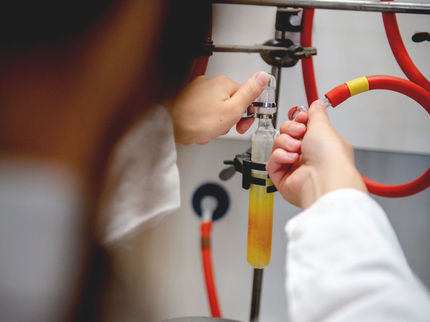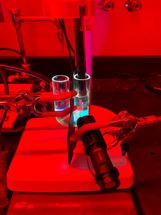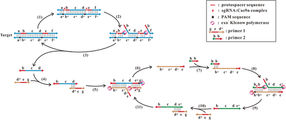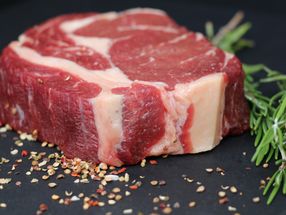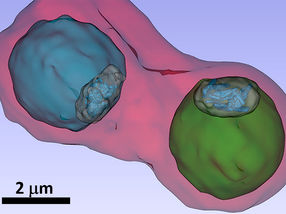Unique world-wide: Metallocene catalysis for synthesis of polyolefin waxes
Clariant invests in "customized waxes"
Licocene® is the name for Clariant's new polyolefin waxes manufactured using metallocene catalysts - in short: "metallocene waxes". What makes them unique is their property profile, which can be optimized and tailored to suit diverse applications. The family of waxes includes polyethylenes and focuses on speciality grades of polypropylenes and copolymers. They distinguish themselves by an excellent cost-benefit-ratio. They have already been successfully used as dispersing aids in the production of masterbatches, in adhesives and sealants as well as in fibre glass coatings for composites. These applications provide access to the plastics and automotive industry as well as to several other sectors.
At present the waxes are produced in a continuously operating pilot plant. This pilot plant is too small to satisfy strongly increasing demand from customers. Therefore, Clariant has decided to build a production plant at the Höchst Industriepark site which is planned to come on stream by the beginning of 2006. As a result Clariant's expertise in polyolefin wax technology and products will be focussed at this site.
Clariant's innovative metallocene catalysis process for the production of polyolefin waxes is unique world-wide. For the first time the most important product properties such as hardness, melting point and viscosity can be exactly adjusted over a wide range in practically unlimited combinations. For the customer, this results in countless ways of controlling the processing and application properties of his products. This diversity can be further extended by chemical modification of the metallocene waxes.
The ability to "tailor" the property profile is the special advantage of using metallocene catalysts. Their molecular structure resembles a sandwich. As in a modular system, these metallocenes can be modified to generate unlimited new waxes. This advantage can be used best with polypropylene waxes. Up to now some types have not been accessible by conventional methods at all.
Other news from the department research and development
Most read news
More news from our other portals
See the theme worlds for related content
Topic world Synthesis
Chemical synthesis is at the heart of modern chemistry and enables the targeted production of molecules with specific properties. By combining starting materials in defined reaction conditions, chemists can create a wide range of compounds, from simple molecules to complex active ingredients.

Topic world Synthesis
Chemical synthesis is at the heart of modern chemistry and enables the targeted production of molecules with specific properties. By combining starting materials in defined reaction conditions, chemists can create a wide range of compounds, from simple molecules to complex active ingredients.
